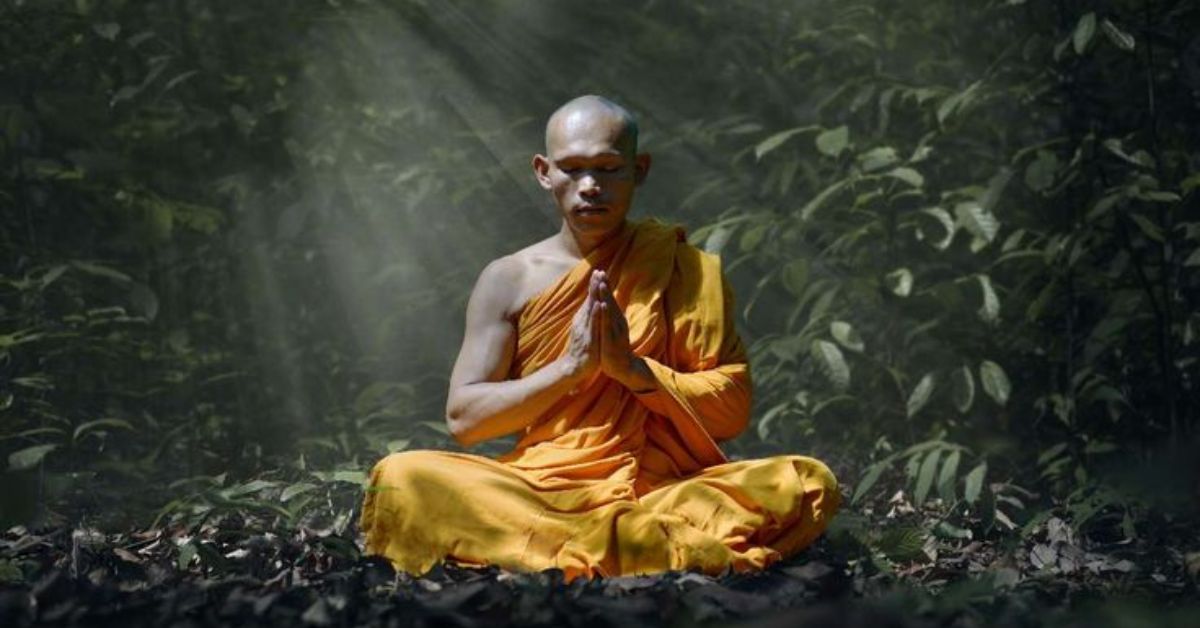Monk names carry deep meanings rooted in monastic traditions and spiritual enlightenment. These names reflect a life of meditation and discipline, often symbolizing inner peace and self-discovery. For monks, names are more than just labels; they represent values and dedication to a higher purpose. Some monk character names even emphasize combat mastery and martial arts, adding strength to their peaceful journey.
In fantasy games like Dungeons & Dragons and World of Warcraft, monk names give players unique identities. Many turn to a monk name generator to find unique monk names that fit their character’s story. Whether drawing from Buddhist monk names, Taoist monk names, or creating something new, these names blend faith principles and spiritual training for rich storytelling.
In real life, monastic communities and faith principles inspire names that align with Buddhism and Taoism. For some, the name reflects spiritual training, while for others, it’s about finding a path to inner peace. Whether for a game or a character study, crafting character names for monks involves understanding their journey and values.
What is a monk in history?
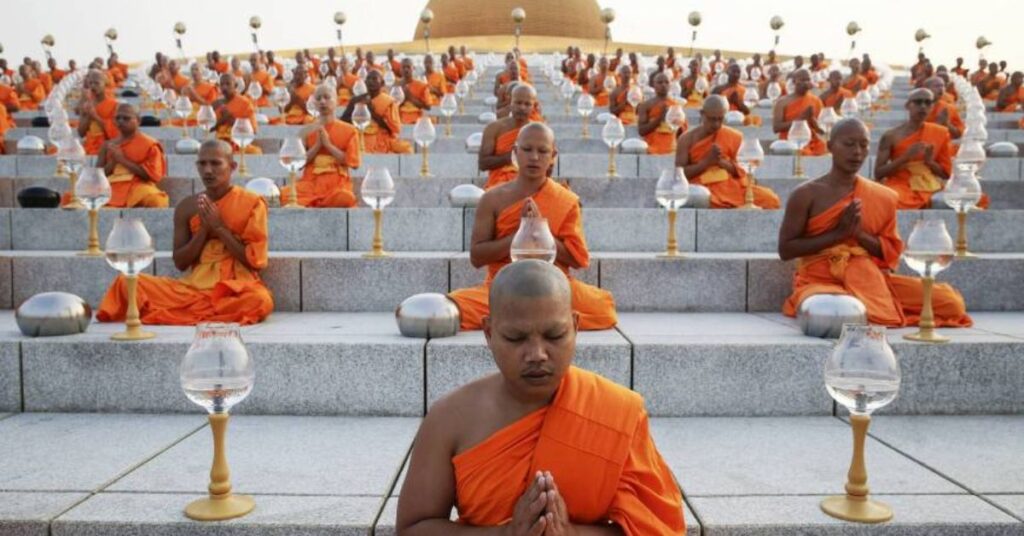
Monks have a long, rich history rooted in dedication to faith. Early monks chose simple lives to focus on spiritual growth and discipline. Monastic life began in ancient Egypt around the 3rd century with Saint Anthony, who is known as the father of monasticism. He inspired others to live in solitude and pray.
Monasticism spread across Europe in the Middle Ages, especially with Benedictine monks. Saint Benedict of Nursia created the Rule of St. Benedict, a guide for monastic life that emphasized prayer and work. This became the model for many monastic communities.
Today, monks live in monasteries and follow different traditions. Some focus on prayer, while others teach or serve communities. Monks continue to inspire people with their commitment to faith, discipline, and service to others.
Dungeons & Dragons (DnD) Monk Names
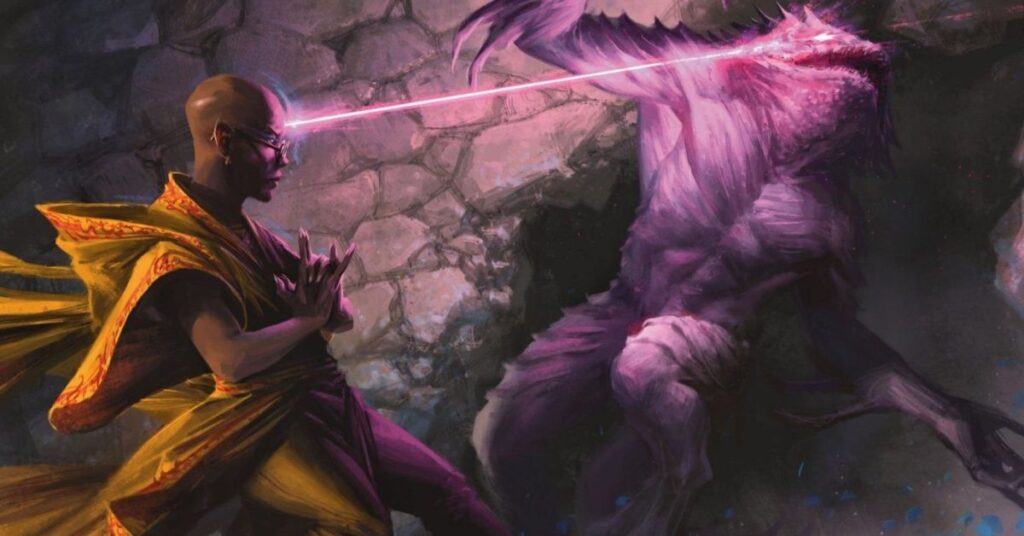
Finding the right monk names in Dungeons & Dragons can add depth to your character’s story and personality. Whether you’re searching for githyanki names or human names DnD, the right name captures your monk’s essence, aligning with their beliefs and skills. Here, we explore a variety of DnD monk names tailored to inspire your character creation and enhance your gameplay.
- Ashira: A name symbolizing dedication and resilience, often associated with strength in martial arts.
- Aveline: Derived from French, meaning “hazelnut”; suggests a grounded, tenacious nature.
- Briar: Refers to thorny plants; symbolizes protective, defensive qualities in battle.
- Bracken: Named after a type of fern; represents endurance and resilience in difficult terrains.
- Caelum: Latin for “sky” or “heaven”; conveys a monk’s serene and spiritual side.
- Cairos: Reflecting a sense of divine timing or opportune moments, from Greek roots.
- Cinder: Implies fiery spirit and determination, like embers that never fully die out.
- Echo: Represents agility and the ability to remain unnoticed; derives from Greek mythology.
- Ember: A symbol of smoldering power, ready to ignite in times of need.
- Emberlyn: A fiery personality, a combination of “ember” and “lyn,” adding a fierce edge.
- Fiera: Derived from Latin, meaning “wild”; denotes a fierce and untamed nature.
- Flint: A name suggesting resilience, hardness, and the ability to create sparks of wisdom or power.
- Gale: Represents the power of wind and speed, ideal for agile combat.
- Galen: Greek origin, meaning “healer”; embodies balance and calm in battle.
- Jasper: From the gemstone, signifying stability, grounding energy, and protective qualities.
- Karael: Inspired by angelic roots, symbolizing purity and wisdom in battle.
- Korin: A name associated with spiritual enlightenment, often linked to nature.
- Liora: Means “light” in Hebrew; symbolizes hope and brightness.
- Lyra: Inspired by the constellation, known for harmony and balance in movements.
- Marin: Latin for “of the sea”; brings fluidity and adaptability to fighting styles.
- Maris: Another ocean-inspired name, representing depth, mystery, and adaptability.
- Mistral: Reflects the powerful winds, suited for monks with swift and precise movements.
- Nyssa: Derived from Greek, relating to nature and growth, symbolizing inner strength.
- Nyx: Greek for “night”; conveys stealth and silent agility.
- Odessa: Inspired by an ancient city, suggesting wisdom and strategic thinking.
- Riven: Means “split” or “torn”; denotes a fierce, battle-tested individual.
- Rune: Refers to ancient symbols of power, often associated with wisdom and insight.
- Sable: Derived from black fur, symbolizing sleekness and stealth.
- Seren: Welsh origin, meaning “star”; ideal for a monk with celestial qualities.
- Silas: Represents strength and freedom, originating from Latin roots.
- Silvan: Related to the forest and nature, known for endurance and adaptability.
- Thalassa: Greek for “sea”; conveys fluidity and the strength of waves.
- Thorne: Suggests defensive strength, like the thorny protection of a rose.
- Talon: Refers to sharp claws; ideal for a monk skilled in precision and strength.
- Vesper: Latin for “evening star”; conveys a serene, calm presence.
- Verdant: Inspired by greenery; symbolizes growth, peace, and a connection to nature.
- Zephyr: Greek for “west wind”; implies speed, grace, and freedom.
Did monks have names?
Yes, monks do have names, which often reflect their spiritual aspirations or the qualities they seek to embody. In many Buddhist traditions, when a person becomes a monk, they may receive a new name that symbolizes their commitment to the monastic life. This name often has significant meaning in the context of their practice.
Additionally, monks might also be referred to by their titles or the name of their monastery. These names help to establish their identity within the monastic community and signify their dedication to a spiritual path. Each name carries a story or purpose, reinforcing their connection to their beliefs.
Male Monk Names
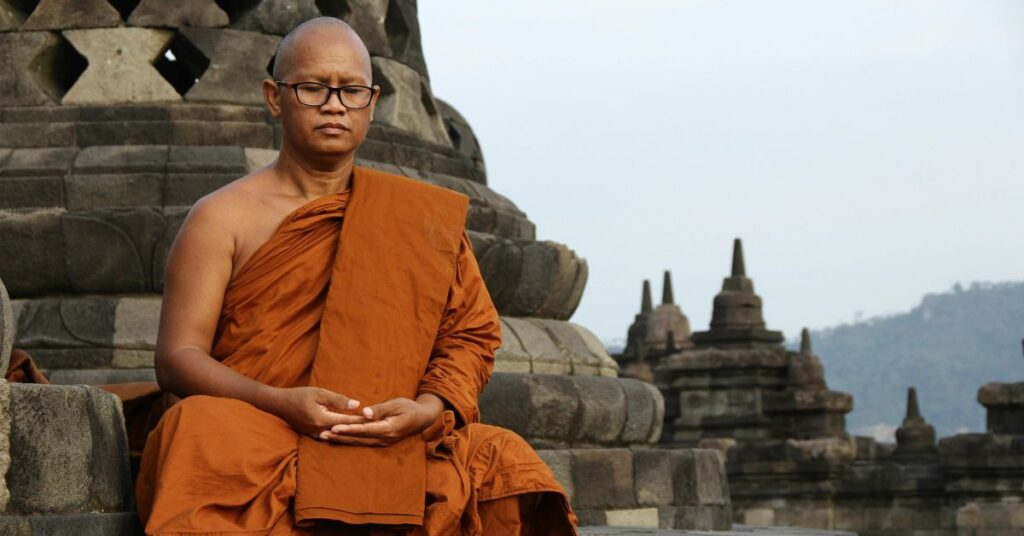
Male monk names often embody strength, wisdom, and purpose. From noble dnd names male that echo across ages to unique and powerful titles inspired by monk characters, each name suits different personalities and backstories. Dive into our collection of awesome monk names for male monks and let your character’s journey begin with the perfect name.
- Aldric: Meaning “wise ruler,” this name is often associated with monks known for their leadership.
- Anurak: Originating in Thai mythology, it means “male angel,” often symbolizing purity and strength.
- Awan: Derived from Indigenous American origins, it signifies “somebody who keeps moving,” reflecting a resilient spirit.
- Bastian: From Latin roots, meaning “venerable,” it’s linked to steadfastness and virtue.
- Caius: Roman origin, meaning “rejoice,” often chosen for monks known for bringing joy or light.
- Cedric: Of Old English origin, meaning “kindly ruler,” symbolizing wisdom in leadership.
- Cyrus: Ancient Persian, signifying “sun” or “throne,” often linked to spiritual enlightenment and power.
- Dainin: A Japanese name meaning “great truth,” emphasizing dedication to purity.
- Darian: Means “upholder of good” in Persian, fitting for monks embodying moral strength.
- Eldric: Derived from Anglo-Saxon, meaning “wise counselor,” associated with wisdom and guidance.
- Elian: With Greek roots, meaning “sun,” it’s used for monks symbolizing light and guidance.
- Fenris: Norse origin, referring to “wolf,” suggesting strength and a fierce protective nature.
- Galen: Of Greek origin, meaning “calm” or “healer,” embodying peace and compassion.
- Harlan: Anglo-Saxon roots, meaning “army land,” symbolizing resilience and protection.
- Ivor: Of Scandinavian origin, meaning “archer” or “warrior,” reflecting a disciplined spirit.
- Jarek: Slavic origin, meaning “fierce” or “strong,” often associated with courage.
- Kael: Irish origin, meaning “mighty warrior,” a fitting name for monks with a protective nature.
- Kian: Gaelic roots, meaning “ancient,” symbolizing timeless wisdom and strength.
- Lorcan: Irish origin, meaning “little fierce one,” often linked to monks with quiet yet powerful resilience.
- Marek: Slavic name, meaning “warrior,” known for a robust and enduring spirit.
- Orin: Gaelic origin, meaning “pale green” or “fair,” symbolizing renewal and serenity.
- Rael: Derived from Hebrew, meaning “of God,” highlighting a deep spiritual connection.
- Ronan: Irish origin, meaning “little seal,” symbolizing peace and adaptability.
- Rowan: Gaelic, associated with the rowan tree, symbolizing protection and inspiration.
- Soren: Scandinavian roots, meaning “stern,” embodying a resolute and focused spirit.
- Stellan: Of Latin origin, meaning “calm” or “peaceful,” often chosen for monks dedicated to tranquility.
- Tarin: Persian, meaning “brave,” fitting for a monk with a bold, compassionate heart.
- Theron: Greek roots, meaning “hunter,” symbolizing strength and resilience.
- Thorvin: Of Norse origin, meaning “thunder friend,” linked to strength and loyalty.
- Torin: Gaelic origin, meaning “chief,” a title for those in leadership roles.
- Valen: Latin, meaning “strong and healthy,” symbolizing vigor and vitality.
Female Monk Names
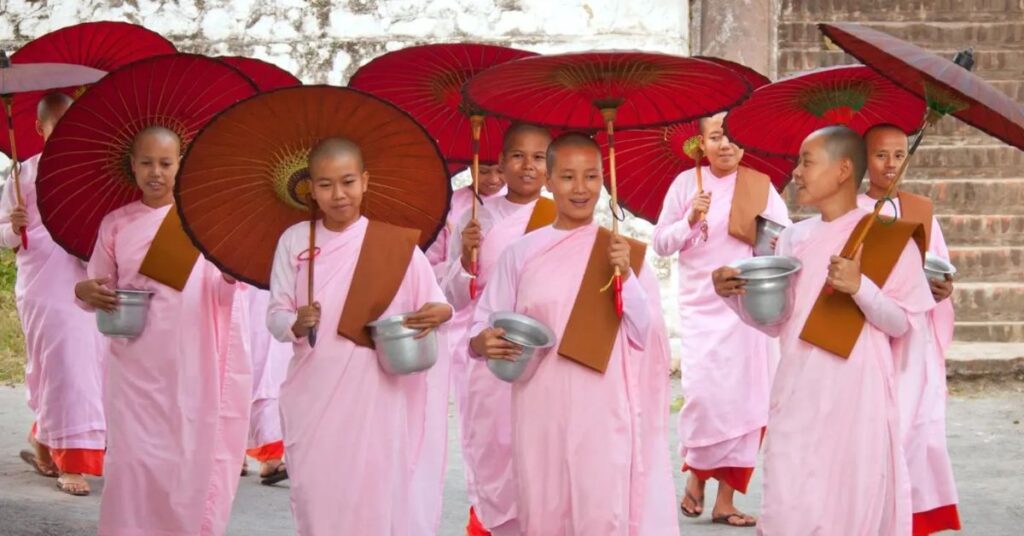
Crafting a strong and graceful female monk requires a name that reflects inner peace and resilience. Our list features female monk names that blend elegance with power, from githyanki female names to distinct dnd girl names. These names will help give your female monk a memorable identity that stands out in any campaign.
- Astraea: Greek origin; symbolizes justice, purity, and innocence, often associated with the celestial goddess of the stars.
- Avalon: From Arthurian legend; a mystical, serene island symbolizing inner peace and refuge for spiritual transformation.
- Aveline: French origin; means “hazelnut” and signifies stability, strength, and a grounded nature.
- Caelia: Latin roots; translates to “heavenly,” symbolizing transcendence and inner peace.
- Celestia: Derived from Latin; means “heavenly,” a name representing divine connection and enlightenment.
- Cressida: Greek mythology origin; linked to themes of loyalty and wisdom, representing a dedicated seeker.
- Elara: Greek origin; celestial name representing beauty and tranquility, evoking calm and inner balance.
- Emberlyn: Old English roots; signifies warmth and light, symbolizing inner fire and spiritual transformation.
- Elysia: Greek origin; refers to the “Elysian fields,” a place of eternal happiness, representing peace and bliss.
- Illumina: Latin-derived; meaning “to illuminate,” symbolizing enlightenment and guidance on the spiritual path.
- Ivora: Slavic origin; means “strength of character,” representing resilience and deep inner wisdom.
- Karma: Sanskrit origin; represents cause and effect, embodying spiritual accountability and transformation.
- Liana: Latin and French origin; signifies “to bind,” symbolizing unity and connection to nature.
- Liora: Hebrew origin; means “my light,” symbolizing guidance and inner clarity on the spiritual journey.
- Lotus: From Buddhist symbolism; signifies purity and enlightenment, rising above material desires.
- Lyra: Greek origin; associated with the lyre, symbolizing harmony and cosmic order.
- Maris: Latin origin; translates to “of the sea,” symbolizing tranquility and the fluidity of spirit.
- Mistara: Mystical name; evokes mist and hidden depths, symbolizing spiritual mystery and insight.
- Nirvana: Sanskrit origin; represents ultimate enlightenment, the liberation from desires and suffering.
- Nyssa: Greek origin; means “goal” or “ambition,” symbolizing a focused and purposeful spirit.
- Odessa: Greek origin; signifies a long journey, representing a spiritual quest for self-discovery.
- Phoenix: Greek mythological origin; symbolizes rebirth, resilience, and spiritual renewal.
- Ravenna: Italian origin; associated with ravens, representing wisdom and a deep connection to nature.
- Sable: French origin; means “black,” symbolizing mystery, wisdom, and the unseen aspects of the soul.
- Saengdao: Thai origin; translates to “starlight,” symbolizing guidance and illumination on the path.
- Selene: Greek origin; represents the moon, associated with calm, intuition, and feminine wisdom.
- Seraphina: Hebrew origin; signifies fiery and angelic qualities, symbolizing purity and spiritual intensity.
- Thalassa: Greek origin; means “sea,” symbolizing depth, intuition, and emotional resilience.
- Thalia: Greek origin; represents festivity and blooming, symbolizing joy and spiritual awakening.
- Thessaly: Greek region; represents historical strength and resilience, a seeker grounded in tradition.
- Vespera: Latin origin; translates to “evening star,” symbolizing calm, mystery, and enlightenment.
- Zephyra: Greek origin; symbolizes the west wind, representing freedom, adaptability, and flow in life.
- Yara: Indigenous Brazilian origin; means “water lady,” symbolizing fluidity, adaptability, and connection to nature.
ALSO READ : Magician Names
Funny Monk Names
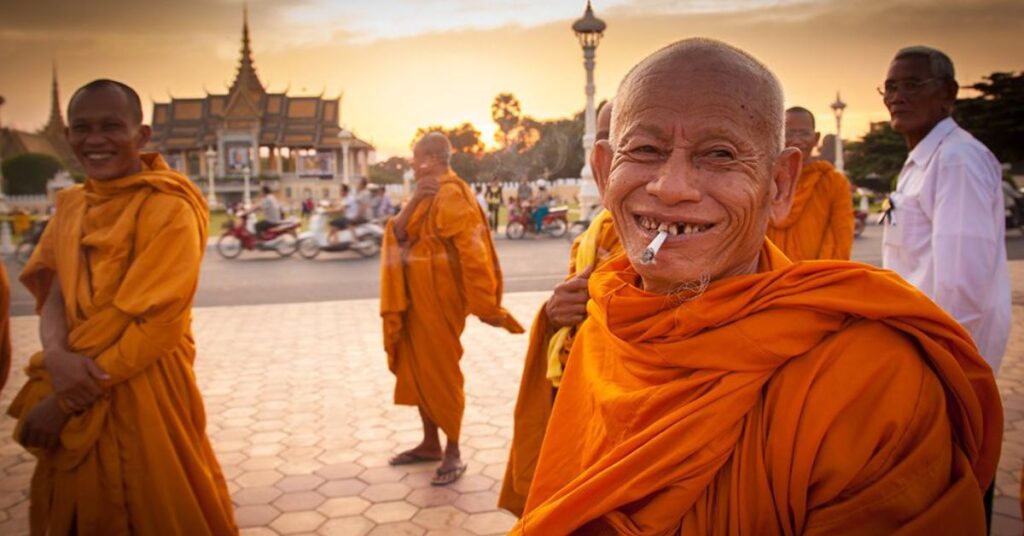
Humor can bring a refreshing twist to your DnD game. If you want a playful approach, consider funny monk names that add personality and levity to your monk. Whether inspired by funny cleric names or BG3 funny sorcerer names, a well-chosen funny name will make your monk unforgettable.
- Bantering Bob: Known for his quick wit, Bob always keeps things lively and humorous among his peers.
- Bellylaugh Bill: A joyous monk whose hearty laughter echoes through the monastery, lifting everyone’s spirits.
- Benny “The Brawler”: Tough yet friendly, Benny’s got a playful edge that makes him the life of any brawl.
- Chortling Charlie: Known for his snickers, Charlie finds humor in every moment, bringing smiles to all.
- Chuck “The Champ”: A bit of a show-off, Chuck’s confidence and charm make him a well-loved figure.
- Chuckling Chuck: Forever laughing, he’s known for his infectious chuckle that even lifts the grumpiest spirits.
- Chuckle Chuck: This monk lives up to his name, constantly in fits of giggles over even the smallest jokes.
- Giggling Greg: Greg’s soft giggles bring comfort to everyone, especially during tough times.
- Grinning Gary: His trademark grin makes him instantly approachable, spreading positive vibes around him.
- Happy Hank: Hank’s pure joy and carefree attitude make him a favorite around the monastery.
- Jester John: Always full of jokes, John’s antics lighten the atmosphere, earning him the title of resident jester.
- Jolly Jake: A big-hearted monk with a constant smile, Jake is full of warmth and goodwill.
- Joking Joe: Known for his clever wordplay, Joe always has a quip ready for any occasion.
- Jovial Jack: This monk’s sunny outlook is infectious, making him a symbol of joy for all.
- Laughing Larry: Larry’s laughter is known to fill rooms, and he’s the go-to monk for a cheerful vibe.
- Laughing Louie: Louie finds humor in everything, keeping everyone amused and entertained.
- Mirthful Mike: His bright personality shines through in his laughter, making him a lighthearted soul.
- Playful Paul: Always up for fun, Paul’s games and pranks keep things interesting.
- Smiling Steve: Steve’s gentle, serene smile brings a calming energy to the monastery.
- Smirking Sam: Known for his mischievous smirk, Sam’s clever pranks are both loved and dreaded.
- Snicker Sam: Sam’s low-key snickers add a subtle humor that lightens even the dullest days.
- Teasing Tim: Tim’s friendly teasing is always in good fun, and it keeps everyone on their toes.
- Witty Walt: With a clever mind, Walt’s quick comebacks make him a hit among his fellow monks.
- Witty Will: Known for his sharp sense of humor, Will is quick with a quip, making him a beloved figure in the monastery.
Can a monk get married?
In general, monks in many Buddhist traditions, especially in Theravada Buddhism, are required to remain celibate and cannot marry. This vow of celibacy is part of their commitment to living a life focused on spiritual development and renunciation of worldly attachments. Monks believe that staying single allows them to dedicate themselves fully to their practice.
However, in some Buddhist sects, particularly in Tibetan and some Mahayana traditions, there are provisions for monks to marry. These variations depend on cultural contexts and specific religious interpretations, allowing for a broader understanding of monastic life. Ultimately, the decision regarding marriage varies widely among different Buddhist communities.
World Of Warcraft (WoW) Monk Names
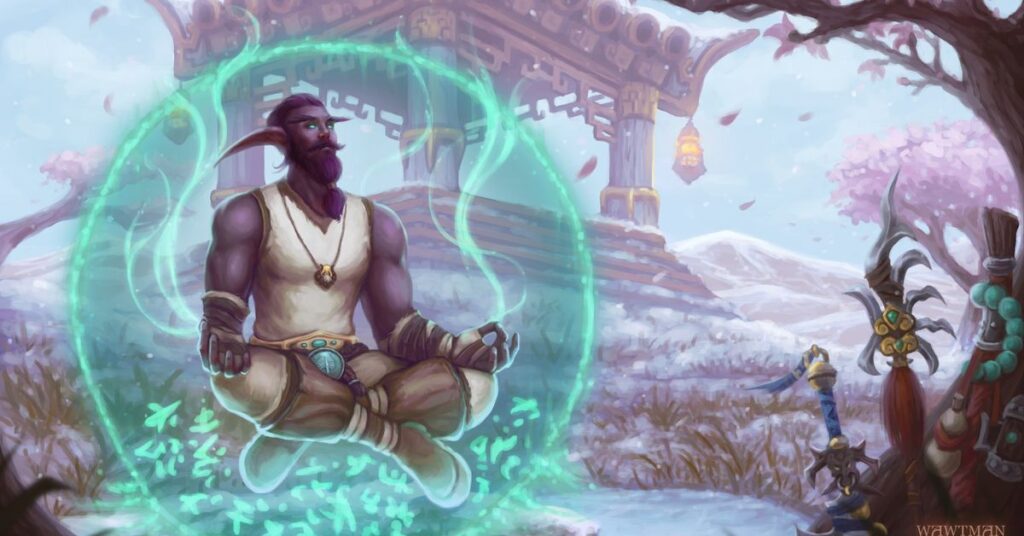
The vast World of Warcraft universe is full of unique monk names that bring a mystical edge to any character. Our name generator WoW human collection features everything from serious to funny hunter names WoW, giving your WoW monk a personality that resonates within Azeroth’s lore.
- Azure Ashi: Symbolizes calmness and wisdom, with “Azure” suggesting a serene sky or water.
- Bamboo Bo: Represents resilience and strength, like the durable bamboo plant.
- Blizzard Bao: Reflects cool-headedness and strength, invoking the power of a snowstorm.
- Brewmaster Ben: Embodies skill in brewing restorative and mystical potions, linked to the brewmaster monk specialty.
- Cherry Blossom Chi: Suggests renewal and grace, inspired by the cherry blossom’s transient beauty.
- Crane Kaito: Honors the crane, a bird of peace and balance in martial arts.
- Dragon Fist Dai: Symbolizes power and aggression, capturing the mythical dragon’s spirit.
- Eagle Eye Eri: Implies sharpness and precision, akin to the eagle’s piercing gaze.
- Ember Elan: Represents a spark of vitality, combining warmth with elegance.
- Fire Lotus Fei: Combines the lotus, symbolizing purity, with fire, denoting fierce inner energy.
- Harmony Hana: Reflects inner peace and unity, essential monk traits.
- Ironfist Iroh: Embodies strength and resilience, with “Ironfist” suggesting an unbreakable will.
- Jade Serpent Jia: Represents wisdom and healing, inspired by the Jade Serpent’s protective aura.
- Lionheart Lin: Symbolizes bravery and courage, the lion being a universal symbol of valor.
- Lotus Lei: Evokes purity and serenity, as the lotus rises untainted from muddy waters.
- Mistweaver Mei: Represents healing abilities; mistweavers specialize in restorative powers.
- Pearl Pao: Reflects rarity and resilience, much like a pearl formed in adversity.
- Phoenix Feng: Signifies rebirth and endurance, drawing on the phoenix’s regenerative myth.
- Serenity Suki: Symbolizes peace and tranquility, core virtues of the monk path.
- Shadow Kick Kai: Implies stealth and precision in combat, invoking the subtlety of shadows.
- Silent Strike Sumi: Reflects mastery of silent, swift attacks, emphasizing stealth.
- Sky Dancer Sora: Evokes freedom and fluidity, like dancing among the clouds.
- Stonefoot Shin: Symbolizes groundedness and resilience, like unmovable stone.
- Stormfist Shen: Represents raw, controlled power, like a brewing storm.
- Thunderfoot Thao: Implies strength and impact, akin to the powerful rumble of thunder.
- Tiger Tien: Represents courage and ferocity, inspired by the tiger’s fierce spirit.
- Viper Ven: Symbolizes agility and precision, like a viper’s quick, precise strike.
- Whirlwind Wu: Captures speed and versatility, evoking the unpredictable nature of a whirlwind.
ALSO READ : Kitsune Names
Cool Monk Names
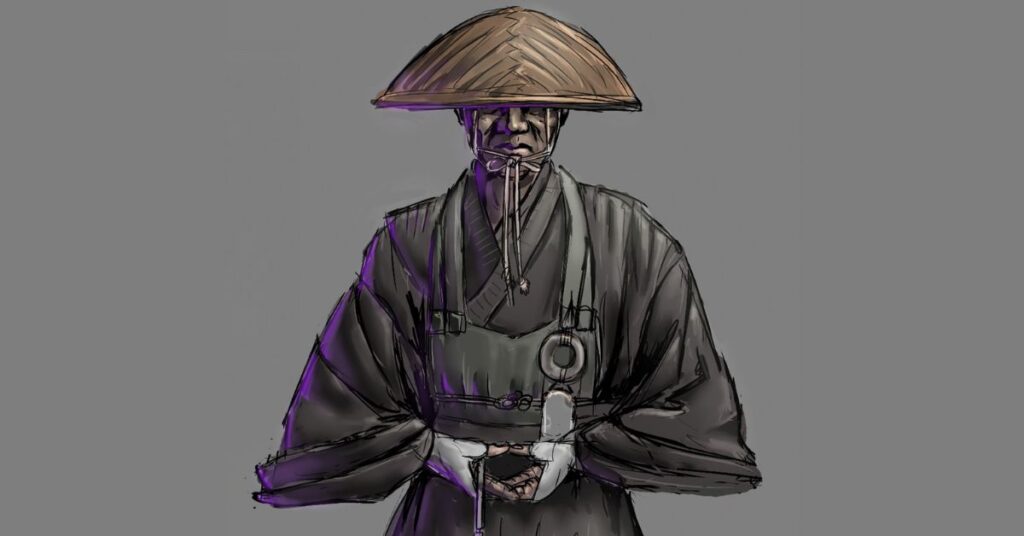
Looking for a name that embodies calm strength and mystery? Our list of cool monk names blends inspiration from D&D, WoW, and other fantasy worlds, including bg3 character names and awesome monk names. Each name is designed to give your monk an intriguing, memorable vibe that fits any storyline.
- Bladewalker: Represents a warrior skilled in the art of close combat, a monk who walks the fine line between offense and defense.
- Bladewind: Symbolizes swiftness and agility, bringing to mind a monk as fast and sharp as the wind.
- Blazeheart: A fierce, passionate soul; ideal for a monk driven by inner fire and determination.
- Blazeborn: Born from flames, this monk embodies rebirth and resilience, echoing qualities of the Phoenix.
- Chaloem: Derived from Thai, meaning “the apex” or highest achievement, reflecting mastery in spiritual or martial arts.
- Emberclaw: Signifies a warm yet lethal grip; fitting for a monk with a fierce but controlled nature.
- Emberwolf: Combines the power of fire with the wisdom of the wolf, symbolizing fierce loyalty and warmth.
- Frostbite: Represents the cold, disciplined side of a monk who can weather any storm.
- Frostfang: Suggests a sharp, icy demeanor; a monk with precision and an unyielding spirit.
- Grimshadow: A dark, mysterious figure who moves in silence, embodying stealth and solitude.
- Ironblade: Known for unbreakable resolve, representing strength and a solid, unwavering character.
- Ironclad: Refers to being tough and well-defended, fitting for a monk with a resilient, fortress-like presence.
- Ironheart: Implies emotional resilience and strength, symbolizing an unshakable inner spirit.
- Jahleel: Derived from Hebrew, meaning “hope in God,” symbolizing faith and resilience in the face of adversity.
- Lunarblade: Represents a connection to the moon, suggesting calmness and balance, mixed with sharpness.
- Nightfall: Symbolizes the calm and mystery of the night, a monk who thrives in darkness and silence.
- Nightshade: Derived from the plant, symbolizing danger and allure, ideal for a stealthy, enigmatic monk.
- Phoenixfire: Represents rebirth and rising from the ashes, perfect for a monk of resilience and new beginnings.
- Shadowfist: Implies a monk skilled in stealthy martial arts, where strength meets secrecy.
- Shadowstrike: Embodies quick, hidden strikes; a monk who appears and disappears like a shadow.
- Silvershadow: Symbolizes elegance and agility, moving with quiet and grace under the moonlight.
- Silverwolf: A wolf at heart with a silver, mystical aura; represents loyalty and mysticism.
- Steelwind: Represents strength and the ability to move gracefully, like a breeze but as tough as steel.
- Stormbreaker: Implies a monk who can confront and overcome the fiercest challenges, like a storm.
- Stormfang: Combines the power of a storm with the sharpness of fangs, suitable for a fierce warrior.
- Stormrider: Represents a monk who thrives amid chaos, controlling and navigating turbulent forces.
- Tempest: Suggests a powerful, stormy spirit, a monk who embodies strength and fury.
- Thunderclaw: Combines power and control; a monk known for swift, forceful actions like thunder.
- Thunderfist: Implies a monk whose strikes are as powerful and sudden as thunder, a symbol of raw strength.
- Tokuon: A Japanese name meaning “helpful sound,” suited to a wise, guiding figure in the monk community.
- Vortex: Reflects an intense, swirling energy, perfect for a monk who draws others into his powerful aura.
- Zenith: Symbolizes reaching the highest point, an ideal for a monk at the peak of enlightenment and strength.
Baldur’s Gate 3 (BG3) Monk Names
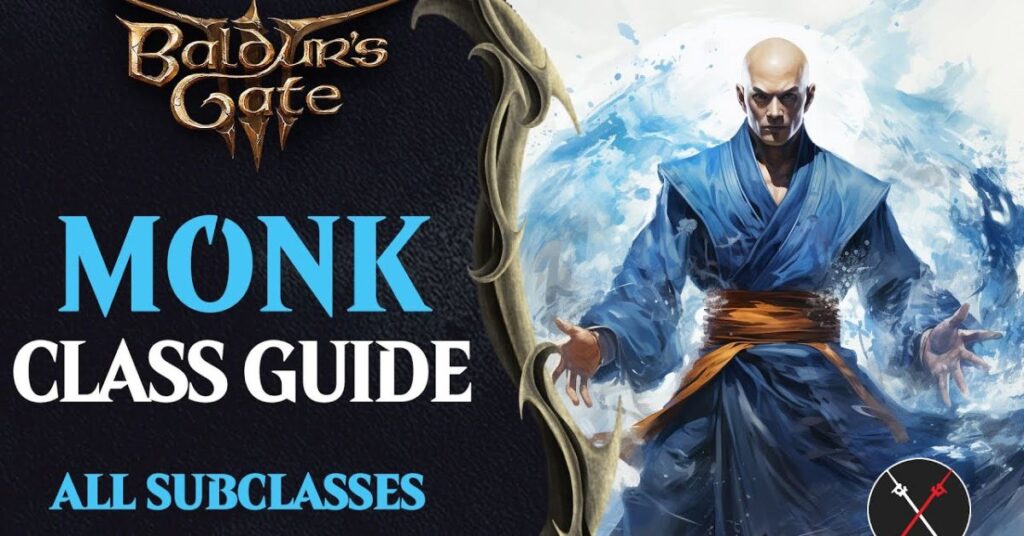
Baldur’s Gate 3 introduces a range of powerful names with mystical significance. Explore our selection of BG3 monk names and discover names inspired by the baldur’s gate name generator and BG3 power generator. These names will give your monk a fitting presence in the epic world of BG3.
- Ashen: Evokes images of a quiet, disciplined soul with resilience born from struggle. Associated with renewal.
- Blaze: Conveys fiery energy and intense drive, symbolizing a warrior spirit that overcomes adversity.
- Celeste: Linked to the heavens, representing calmness, clarity, and a connection to the spiritual realm.
- Drake: Implies strength and vigilance, embodying a fierce protector with a dragon-like presence.
- Eclipse: Reflects mystery and duality, symbolizing the harmony of light and shadow within.
- Ember: A name that embodies a quiet strength, representing the spark of inner power waiting to ignite.
- Falcon: Represents sharpness and precision, likening the monk’s skill to the keen sight and agility of a bird of prey.
- Frostbite: Symbolizes a cold, calculated demeanor, often associated with endurance and a cool-headed approach.
- Gale: Suggests speed and freedom, akin to a powerful wind moving swiftly and unpredictably.
- Hawk: Known for sharp vision and quick strikes, this name symbolizes focus and agility.
- Ironclad: Evokes strength and resilience, representing an unbreakable spirit and formidable defense.
- Lynx: Associated with stealth and keen instincts, highlighting a mysterious and watchful nature.
- Nimbus: Relates to clouds or an aura, symbolizing a mystical presence that transcends physical limitations.
- Nyx: Draws from Greek mythology, representing the goddess of night and an affinity for shadows.
- Obsidian: A dark volcanic glass, symbolizing resilience and a striking, sharp essence.
- Phoenix: Symbolizes rebirth and resilience, representing a soul that rises anew from challenges.
- Raven: Known for its wisdom and association with mystery, symbolizing an insightful and watchful spirit.
- Rook: Represents strategy and foresight, like the chess piece, emphasizing calculated movements.
- Seraph: Linked to celestial beings, symbolizing purity, strength, and divine purpose.
- Shadowblade: Represents a stealthy, precise fighter, merging the concepts of shadow and weapon.
- Storm: Embodies chaotic energy and power, symbolizing a force of nature in battle.
- Thorn: Evokes a tough exterior with a sharp edge, representing resilience and defensiveness.
- Valor: Conveys bravery and courage, representing a noble warrior dedicated to justice.
- Wisp: Represents lightness and agility, akin to a fleeting, mystical presence.
- Whisper: Symbolizes stealth and subtlety, representing a silent but potent force.
Elf Monk Names
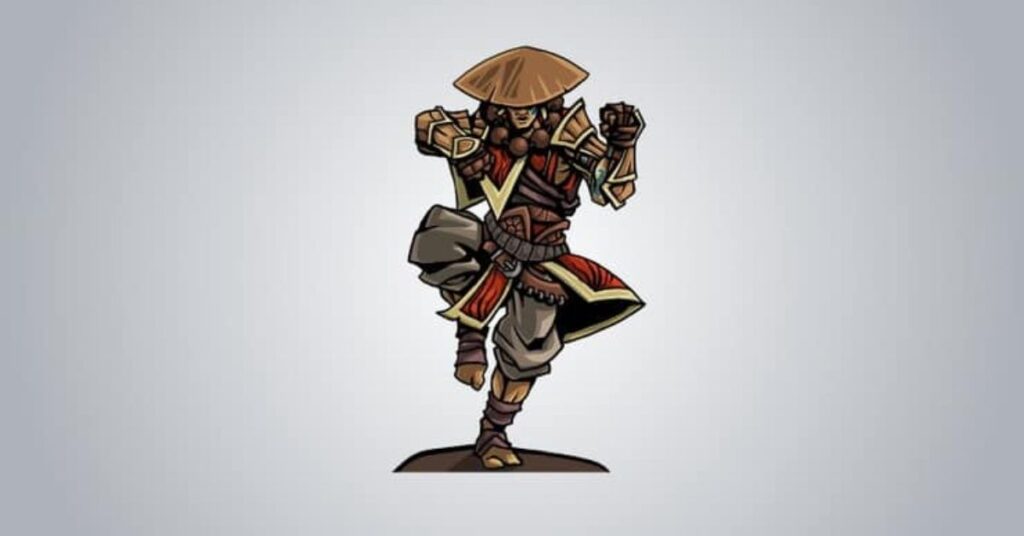
Elf monks bring agility, grace, and ancient wisdom to the table, and their names should reflect that elegance. Our elf monk names collection includes options from githyanki names to dnd human name styles that will make your elf monk stand out with sophistication and poise.
- Aeloria: Known for wisdom and serenity, Aeloria is derived from ancient elven dialects, symbolizing “light” and spiritual guidance.
- Alariel: Alariel stands for “brilliance” and “noble grace,” often embodying elves with healing or protective auras.
- Arannis: This name, meaning “royal soul,” is given to those with noble stature and peacekeeping roles within elven societies.
- Ariandel: Originating from old elvish lore, Ariandel represents “eternal flame,” often associated with resilience and inner strength.
- Caelith: A name with ties to the “sky,” Caelith symbolizes boundless potential and wisdom, fitting for monks who seek enlightenment.
- Eldarion: Meaning “descendant of the stars,” Eldarion reflects elven affinity with cosmic energy and ancient wisdom.
- Eldorien: Eldorien means “protector of light,” often chosen for guardians of sacred elven traditions.
- Elowen: “Elm tree” in elvish, Elowen connects deeply with nature, symbolizing endurance and calm.
- Elaria: Known as the “gentle breeze,” Elaria is often symbolic of elven harmony and adaptability.
- Elladorn: “Noble leaf” in origin, this name reflects elves known for wisdom and deep forest connections.
- Felarion: This name means “shadow walker,” fitting for elusive, agile monks skilled in stealth.
- Fenris: Derived from tales of moonlit wolves, Fenris symbolizes a balance between wilderness and refined control.
- Galad: Meaning “tree guardian,” Galad suits protectors of nature with a strong defensive spirit.
- Galathiel: An ancient elven name meaning “heaven’s flower,” known for a gentle yet enduring presence.
- Isilwen: Signifying “silver moon,” Isilwen embodies mystery and quiet wisdom, suited to contemplative souls.
- Liorael: Known as “heart of light,” Liorael represents inner strength and hope.
- Lorien: Lorien, meaning “dreamer,” is associated with visionary monks who meditate and explore ethereal realms.
- Lythari: Known as “spirit of the wolf,” Lythari suits those with a wild and loyal spirit.
- Mirilas: Representing “song of peace,” Mirilas embodies harmony and artistic expression among monks.
- Nerina: This name, meaning “ocean’s calm,” is given to those with soothing and healing energies.
- Nimrael: “Moonlight dancer,” Nimrael signifies agility and grace, often suited to monks of stealth.
- Rivenna: Derived from the word for “dusk,” Rivenna represents balance between light and shadow.
- Sereniel: A name meaning “tranquil heart,” Sereniel embodies monks with a serene and compassionate nature.
- Silmaris: Symbolizing “star brilliance,” Silmaris is often for monks with celestial or mystical alignments.
- Sylphiel: Known as “wind spirit,” Sylphiel fits those who are swift, elusive, and in tune with the elements.
- Thalindra: Meaning “forest spirit,” Thalindra is suited for monks who serve as nature’s guardians.
- Thalion: Representing “unyielding strength,” Thalion signifies resilience and endurance in the face of adversity.
- Varanth: Meaning “keeper of secrets,” Varanth suits wise monks tasked with preserving elven lore.
Good Monk Names
If you’re seeking traditional yet powerful good monk names with meaningful backgrounds, explore our list of classic and buddhist nickname inspired names. Each name connects with the virtuous path monks often follow, enhancing your character’s spiritual depth.
- Benevolence: Reflects kindness and compassion, embodying the virtue of selfless love.
- Bliss: Symbolizes a state of supreme happiness and peace, often associated with enlightenment.
- Charity: Represents selfless giving and love for others, a core monastic value.
- Dainin: Originating from Japanese Zen Buddhism, meaning “one with great patience,” reflecting perseverance in the spiritual journey.
- Daikaku: Japanese in origin, meaning “enlightenment of the mind,” signifying clarity and wisdom.
- Daikan: Derived from Zen teachings, meaning “active and powerful,” showing strength of mind.
- Daiko: Japanese, meaning “powerful light,” symbolizing guidance and wisdom.
- Felicity: Represents happiness and contentment, a quality often cultivated in monastic life.
- Faith: Embodies trust and belief, central to the commitment to spiritual paths.
- Gentle: Reflects softness in spirit, denoting kindness and peace.
- Grace: Signifies divine favor and elegance, representing humility and poise.
- Harmony: Symbolizes balance and unity, often a goal of spiritual practices.
- Haven: Means a place of refuge, embodying the idea of peace and sanctuary.
- Hope: Reflects optimism and aspiration, encouraging a positive outlook in life.
- Justice: Symbolizes fairness and integrity, virtues often upheld in monastic orders.
- Joy: Represents a profound sense of happiness and inner peace.
- Jikai: Japanese term for “sea of sympathy,” conveying boundless compassion.
- Kindred: Reflects a connection to all beings, embodying empathy and unity.
- Kokoro: Japanese, meaning “heart, mind, and feelings,” representing holistic inner peace.
- Mercy: Reflects forgiveness and compassion, a core value in spiritual disciplines.
- Noble: Denotes honor and high moral principles, important in the monk’s life.
- Patience: Embodies tolerance and calm, essential virtues in spiritual growth.
- Radiance: Symbolizes inner light and positivity, often associated with wisdom.
- Resolve: Represents strong determination and dedication to one’s spiritual path.
- Seraph: Derived from the angelic hierarchy, symbolizing purity and devotion.
- Serenity: Reflects a state of peacefulness, often the goal of meditative practices.
- Solace: Means comfort or consolation, embodying the monk’s role as a guide.
- Tranquil: Represents calmness and stability, essential in achieving inner peace.
- Valor: Denotes courage and strength, vital traits in spiritual resilience.
- Verity: Means truth, reflecting the pursuit of wisdom and authenticity.
- Virtue: Represents moral excellence, a defining quality in monastic life.
ALSO READ : Samurai Names
Famous Monk Names
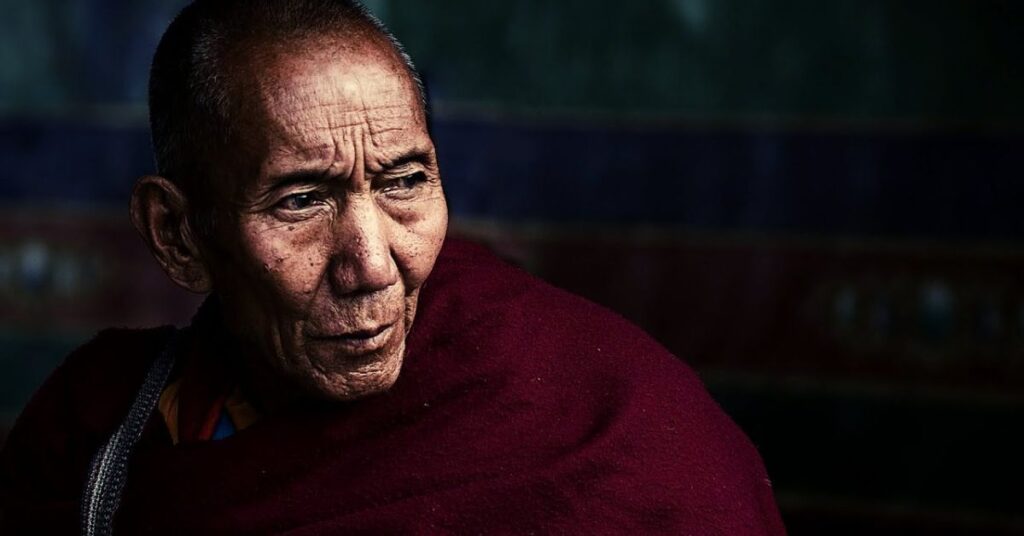
Famous monks have left a lasting impact on both real and fantasy worlds. Explore famous monk names, from historical legends to D&D favorites. Whether drawing from a buddha nickname or popular monk names DnD, a famous name can add depth and credibility to your character.
- Aang: A character from “Avatar: The Last Airbender,” Aang is a young Airbender who embodies the spirit of peace and balance. His journey reflects themes of responsibility and self-discovery.
- Ajahn Chah: A renowned Thai Buddhist monk, Ajahn Chah was instrumental in spreading Theravada Buddhism to the West. His teachings emphasized mindfulness and meditation.
- Ajahn Sumedho: An American Theravada monk, Ajahn Sumedho is known for his teachings on the importance of mindfulness and awareness in daily life. He founded the Amaravati Buddhist Monastery in the UK.
- Ananda: One of the Buddha’s closest disciples, Ananda is known for his exceptional memory and ability to recite the Buddha’s teachings. His name means “bliss,” symbolizing the joy of enlightenment.
- Anagarika Dharmapala: A key figure in the revival of Buddhism in Sri Lanka, Dharmapala worked to establish Buddhist education and cultural awareness. His efforts laid the groundwork for modern Buddhist organizations.
- Bodhi: Meaning “awakening” or “enlightenment,” Bodhi symbolizes the ultimate goal of Buddhist practice. It is often associated with the Bodhi tree under which the Buddha attained enlightenment.
- Bodhidharma: The legendary founder of Zen Buddhism, Bodhidharma is known for introducing the practice of meditation to China. His teachings emphasize direct experience and the nature of mind.
- Brother Cadfael: A fictional monk from the mystery novels by Ellis Peters, Brother Cadfael is a medieval herbalist who solves crimes while practicing monastic life. His character represents wisdom and compassion.
- Brother Wulf: A character from literature, Brother Wulf embodies the spirit of the medieval monk, focusing on loyalty and community. He represents the challenges of faith and duty.
- Chen Stormstout: A character from the “World of Warcraft” universe, Chen is a Pandaren brewmaster and monk. He symbolizes balance and harmony with nature through his dedication to martial arts.
- Dalai Lama: The spiritual leader of Tibetan Buddhism, the Dalai Lama is known for his advocacy of peace, compassion, and human rights. His teachings promote understanding and tolerance among all religions.
- Dharma: Referring to the teachings of the Buddha, Dharma is a central concept in Buddhism that guides practitioners on the path to enlightenment. It represents truth, cosmic law, and moral order.
- Dogen: A Japanese Zen master, Dogen founded the Soto school of Zen and emphasized the importance of zazen (sitting meditation). His writings explore the relationship between practice and enlightenment.
- Fang Zheng: A contemporary Chinese Buddhist monk, Fang Zheng advocates for social harmony and spiritual growth. He emphasizes the integration of Buddhist principles in daily life.
- Geshe Kelsang Gyatso: A Tibetan Buddhist monk and teacher, he established the New Kadampa Tradition, focusing on modern interpretations of Buddhism for contemporary practitioners.
- Hsing Yun: A Taiwanese Buddhist monk, Hsing Yun is known for his efforts to promote Humanistic Buddhism, emphasizing social engagement and community service as part of spiritual practice.
- Huineng: The sixth patriarch of Zen Buddhism in China, Huineng is known for his teachings on sudden enlightenment and the importance of direct experience in understanding the mind.
- Jack Kornfield: An influential American Buddhist teacher, Kornfield is known for integrating Western psychology with Eastern spirituality. His teachings focus on compassion, healing, and mindfulness.
- Jukai: A traditional Zen Buddhist ceremony where practitioners receive the precepts, symbolizing their commitment to the path of enlightenment. It signifies a deepening of one’s practice.
- Karma: A key concept in Buddhism, karma refers to the law of moral causation, where one’s actions influence future experiences. It underscores the importance of ethical conduct.
- Kenshin Himura: A character from the anime “Rurouni Kenshin,” Kenshin is a former assassin turned wanderer who seeks redemption. His journey reflects themes of peace and the struggle between past and present.
- Kurama: A character from “Yu Yu Hakusho,” Kurama is a fox spirit with deep wisdom and compassion. He represents the duality of nature and the balance between good and evil.
- Lotus: Symbolizing purity and enlightenment in Buddhism, the lotus flower grows in muddy waters but rises above to bloom. It represents the potential for spiritual awakening.
- Matthieu Ricard: A French Buddhist monk and author, Ricard is known for his work on happiness and altruism. He promotes the integration of scientific research with Buddhist philosophy.
- Master Li: A fictional character, Master Li often represents wisdom and mastery in martial arts narratives. He embodies the principles of discipline and enlightenment.
- Master Oogway: A wise tortoise from the “Kung Fu Panda” series, Master Oogway embodies the ideals of patience, wisdom, and the importance of believing in one’s potential.
- Miruko: A lesser-known monk character, Miruko symbolizes perseverance and the spiritual quest for enlightenment in various narratives. He reflects the inner struggles faced on the path.
- Monk Gyatso: A character from “Avatar: The Last Airbender,” Monk Gyatso is Aang’s mentor. He represents compassion and the importance of tradition in nurturing young minds.
- Monk Tang: A character from the classic Chinese novel “Journey to the West,” Monk Tang symbolizes the pursuit of spiritual truth and enlightenment amidst challenges.
- Nhat Hanh: A Vietnamese Zen master, Thich Nhat Hanh is renowned for his teachings on mindfulness and peace. He emphasizes living fully in the present moment.
- Nirvana: In Buddhism, Nirvana represents the ultimate state of liberation and freedom from suffering. It is the goal of Buddhist practice, signifying the end of the cycle of rebirth.
- Pema Chödrön: An American Tibetan Buddhist nun, Chödrön is known for her teachings on compassion and the practice of embracing difficulties as part of spiritual growth.
- Pai Mei: A legendary martial arts master, Pai Mei is known for his rigorous training methods and wisdom. He symbolizes discipline and mastery in martial arts traditions.
- Radiance: Often associated with spiritual enlightenment, radiance signifies the inner light that arises from deep meditation and understanding of the self.
- Samadhi: A state of deep concentration and meditation in Buddhism, samadhi refers to the union of mind and object, leading to profound insight and realization.
- Sangha: The community of Buddhist practitioners, the Sangha plays a vital role in supporting individuals on their spiritual journey. It represents the collective effort toward enlightenment.
- Shaolin: Famous for its martial arts, the Shaolin Temple is a center for Buddhist practice and physical discipline. It symbolizes the integration of body and mind in training.
- Shaolin Monk: A monk trained in the Shaolin tradition, Shaolin monks are known for their martial arts skills and commitment to Buddhist teachings. They exemplify strength and discipline.
- Shifu: A term for a teacher or master in Chinese culture, shifu signifies respect and recognition of one’s expertise in a particular field, often associated with martial arts or spiritual guidance.
- Shunryu Suzuki: A Japanese Zen monk, Suzuki is known for introducing Zen Buddhism to the West and emphasizing the simplicity and depth of zazen practice.
- Sogyal Rinpoche: A Tibetan Buddhist teacher, Sogyal Rinpoche is known for his teachings on the Tibetan Book of the Dead and the nature of mind, promoting awareness of impermanence.
- Sutra: Referring to a collection of teachings attributed to the Buddha, sutras serve as foundational texts in Buddhism, guiding practitioners in their spiritual journey.
- Thich Nhat Hanh: A prominent Vietnamese Zen master and peace activist, Thich Nhat Hanh advocates mindfulness and compassion, encouraging individuals to live fully and harmoniously.
Famous Monk Cartoon Names
Animated monks have inspired countless viewers with their wisdom and charm. Our famous monk cartoon names list celebrates iconic monks from beloved shows, adding a touch of familiarity and nostalgia. These names are perfect for characters who blend humor with sage-like wisdom.
| Cartoon Title | Broadcasting Channel | Main Characters |
| Avatar: The Last Airbender | Nickelodeon | Aang (Air Nomad/monk), Katara, Zuko |
| Shaolin Wuzang | France 3 | Hua, Tang, Cheng |
| Kung Fu Panda: Legends of Awesomeness | Nickelodeon | Po, Shifu, Tigress |
| The Monk | TF1 (French) | Benedictine Monk, Demon |
| Journey to the West | Various Asian Networks | Monkey King, Monk Tang Sanzang |
Famous Monk Movies Names
Film has produced many memorable monk characters, from martial arts masters to wise sages. Discover famous monk movie names that capture the essence of these characters, including references to mortal kombat name generator and avatar the last airbender name generator options, giving your monk a cinematic quality.
| Movie Title | Release Year | Main Characters |
| The Flowers of St. Francis | 1950 | St. Francis, Brother Ginepro |
| Of Gods and Men | 2010 | Brother Christian, Brother Luc |
| Doubt | 2008 | Sister Aloysius, Father Flynn |
| The Cup | 1999 | Orgyen, Neten, Jamyang |
| The Sound of Music | 1965 | Maria, Captain von Trapp, Sister Margaretta |
| The Little Buddha | 1993 | Lama Norbu, Jesse Conrad, Prince Siddhartha |
| The Last Temptation of Christ | 1988 | Jesus Christ, Judas, Mary Magdalene |
| The Name of the Rose | 1986 | William of Baskerville, Adso of Melk |
| The Nun’s Story | 1959 | Sister Luke, Dr. Fortunati |
| Spring, Summer, Fall, Winter… and Spring | 2003 | Old Monk, Young Monk |
Tips for Choosing the Perfect Monk Names
Choosing the perfect monk name involves balancing uniqueness with relevance to your character’s background. Consider tools like the monk name generator or the baldur’s gate 3 name generator to inspire fresh ideas. Reflect on the personality you want to convey and use names for dungeons and dragons characters that align with your monk’s story and virtues.
Reflect Cultural Roots: Select names that align with your monk’s origin, whether inspired by East Asian, Tibetan, or fantasy-based traditions. This adds depth and authenticity to your character.
Consider Personality Traits: Choose names that embody qualities like peace, strength, or wisdom, such as “Calm Wind” for a serene character or “Iron Fist” for a more martial one.
Focus on Simplicity: Monk names often carry simplicity, so aim for names that are easy to pronounce yet memorable, embodying a humble essence.
Draw from Nature: Names inspired by natural elements, like “Silent River” or “Bamboo Shade,” resonate well with monks who value harmony with nature.
Use a Name Generator for Inspiration: If you’re stuck, try a monk name generator for unique ideas that can spark creativity, then modify the suggestions to fit your character better.
FAQs
What is a good name for a monk?
A good name for a monk often reflects qualities of peace, wisdom, or nature. Names like “Calm Spirit,” “Silent Lotus,” or “Wise Oak” capture the essence of a monk’s serene lifestyle and commitment to inner growth.
What are some names of monks?
Some notable monk names include “Bodhidharma,” the founder of Zen Buddhism, and “Thich Nhat Hanh,” a modern-day Vietnamese Zen master known for his teachings on mindfulness. These names often symbolize the monastic path and spiritual leadership.
What is the name of a famous monk?
One famous monk is “Tenzin Gyatso,” the 14th Dalai Lama, revered worldwide for his teachings on compassion and peace. His name reflects his Tibetan heritage and spiritual significance in Buddhism.
Do monks have special names?
Yes, monks often receive special names upon ordination that signify their spiritual journey or dedication to their practice. These names may be derived from Buddhist texts or represent virtues they aspire to embody.
Did monks have names?
Historically, monks have always had names, either given at birth or received during their ordination. These names often hold significant meaning related to their faith, lineage, or personal attributes.
What kind of name is a monk?
The term “monk” typically refers to a male member of a religious community who has taken vows of poverty, chastity, and obedience. While “monk” itself is not a personal name, it designates an individual dedicated to spiritual practices and a communal lifestyle.
Conclusion
Choosing the right monk names can enhance the character’s identity in stories, games, or role-playing activities. These names often reflect qualities such as peace, wisdom, and connection to nature. By selecting names that resonate with the character’s traits and background, one can create a more engaging and believable persona.
Exploring different sources for inspiration can also help in finding unique monk names. Using name generators and studying famous monks can provide great ideas. Ultimately, a good monk name adds depth and meaning, making the character stand out. Whether for a game or a story, finding the perfect name is a fun and creative process. It brings the character to life and connects them to their monastic journey.
Sources
- Britannica – Monk
- National Geographic – Buddhism
- Wikipedia – Monk (Dungeons & Dragons)

Helen Lisa is the admin of our platform dedicated to exploring the meanings and origins of names. With a deep interest in linguistics and culture, she curates insightful content to help users uncover the stories behind names. Helen’s expertise ensures a valuable and engaging experience for our audience.
